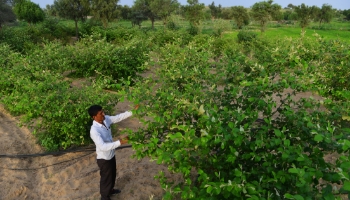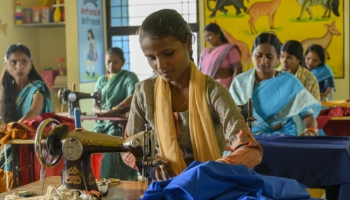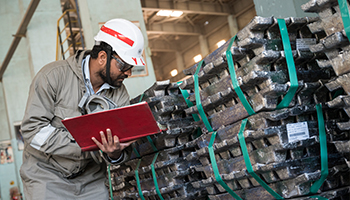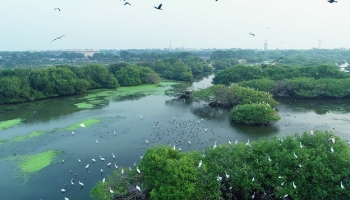Feb 4, 2023 . Read 5 min
Destigmatising cancer and closing the care gap
Bhawna Sirohi, Medical Director, Balco Medical Centre
World Cancer Day is marked as a global event that takes place annually on February 4. The day is commemorated to raise awareness about cancer prevention, detection, and treatment. This year the theme for this day is "Close the Care Gap," which is what Balco Medical Centre (BMC) has been striving for since the day of its inception under the aegis of Anil Agarwal Foundation and Vedanta Medical Research Foundation. The focus is on the need to address disparities in cancer care and make sure that everyone has access to quality cancer care irrespective of their economic status or area where they live in. Currently, it has active operations across Central India while it aims to spread its wings, PAN India.
Based on recent data, 1 out of every 5 individuals happen to develop cancer in a lifetime and this global burden mainly seems to be borne by low- and middle-income group countries like India. Nevertheless, such common cancers as head & neck, breast & cervix are not only preventable in our country but also easily treatable if detected early by methods which are accessible to most of the population and are cost-effective.
BMC, since the time of its establishment has taken all comprehensive steps to close the care gap for its patients, so they not only receive quality but equitable care. The centre raises cancer awareness through an unlearn- learn process of the ABCs of cancer prevention that expands as
A: avoid tobacco and alcohol
B: breastfeed, be breast aware, and get vaccinated against hepatitis B and HPV
C: calm
D: diet which is balanced – local and fresh
E: exercise 30-45 minutes daily
F: family history that you need to know everything about
S: screening for cervix (HPV/Pap smear), breast (mammogram, clinical exam), head and
neck
(clinical exam), colon (stool occult blood) and cancer alert signs for early diagnosis.
It further aims at promoting preventions through tobacco cessation clinics, vaccination clinics with an objective to work with all local schools, create awareness and reduce the risk of preventable diseases along with an easy access and availability of indigenous HPV vaccine.
BMC organises free screening camps to enhance its access by working with Nand Ghars in driving training and education of Anganwadi workers, ASHA, Mitayan at rural level including villages and semi-urban areas. Patients diagnosed are treated at BMC irrespective of their financial status. The mammography van which is going to be launched this year that will further help in bridging the gap by providing access to cancer screening at the doorstep in villages.
To contribute to the national efforts, patients under the PM-JAY, Ayushman Bharat and all government schemes are treated at BMC despite the challenges faced. Patients not covered under any scheme are treated under the BMC charitable fund. BMC provides every aspect of cancer treatment including bone marrow transplants and radionuclide therapy which is unique in central India. This closes the care gap for patients as they do not have to travel to tertiary cancer centres like TMH, Mumbai. Though the centre has made sure to continue to better its concept of learning from each other and hence under a MoU signed with Tata Memorial centre, it conducts virtual NCG tumour boards to drive excellence in cancer care and give the centre a national benchmark to strive for. BMC also adheres to the national cancer guidelines and is part of the Indian council of Medical Research and National cancer grid (NCG) which supports the centre in delivering unified cancer care nationally and helps take the lead.
Patient advocacy is at the heart of culture of BMC for which patient support groups are developed which not only help in empowering patients but also drive patient education, strength, and better compliance rates to cancer treatments. These are run regularly at BMC. This has been a strong and a wise initiative to close the care gap actively as this would save patients from undergoing unnecessary tests or treatment and improve outcomes.
World Cancer Day serves as a powerful reminder of the collective efforts required to address the global cancer crises. Each one of us has the power to make a difference and to help create a world where cancer is no longer a threat to life. Let us all act and pledge to do our part in doing the best for our patients and destigmatising cancer. This will close the care gap.







